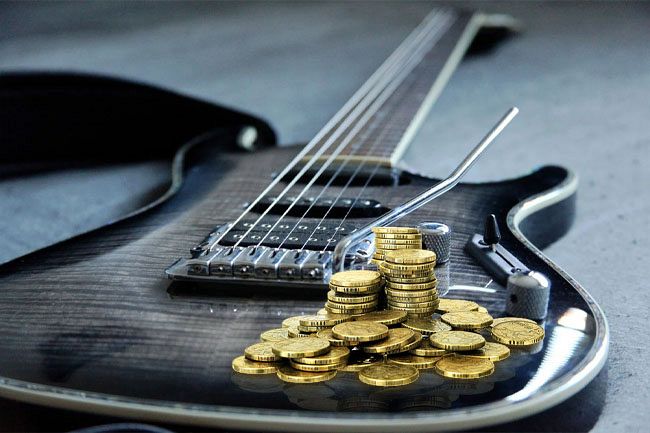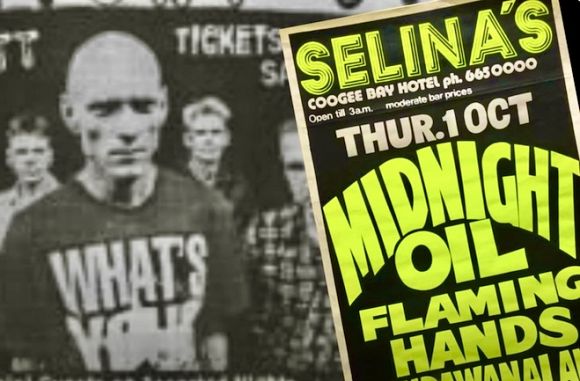The Australian music industry is being largely ignored by commercial radio and now the Federal Government is delaying a decision on artists earning royalties. IA's music reporter, David Kowalski, explains the latest parliamentary indecision.
Scrap the cap, PPCA
In a previous column, I mentioned the new legislation being tabled before the Federal Parliament to change the caps on revenue paid by radio stations in Australia to recording artists for broadcasting their music. The committee has returned its verdict and it recommends... wait for it...
A ‘cost-benefit analysis’ on the impact of changing the cap. In other words, the review recommended another review. A classic indecisive governmental decision.
On one side of the argument, Commercial Radio Australia is happy about this decision to do nothing. It is of the opinion that increasing the cap (currently set at 1% of all revenue in a calendar year) or removing it altogether would make music too expensive to broadcast on radio.
The other side, the Phonographic Performance Company of Australia (PPCA) which collects the royalties for musicians from broadcast outlets, says that scrapping the cap would allow for double the number of Australian artists played on radio and increased revenue paid to those artists of up to 78% on average.
I call BS to that. I would be more inclined to believe that if commercial radio in this country had a history of supporting Australian music as its core business. A cursory glance over the last 50 years or so of Australian music will be enough to convince otherwise.
To wit: the odds of you turning on a classic hits radio station anywhere in Australia today and hearing a Cold Chisel song in the first half an hour are very high. I jumped in the car this morning to drive to work and the first song the local station was playing was ‘Flame Trees’. The band celebrate its 50th anniversary in 2024 and enjoys record levels of airtime currently.
The fact is that when Cold Chisel was a new band, commercial radio wouldn’t go anywhere near it. It became so popular in pubs and stages that eventually, radio had to pay attention. The ABC’s Triple J was onboard from day one; the commercial stations wouldn’t play a Cold Chisel record until their third album, East, had at least earned gold record status (35,000 copies).
Other classic bands who are all over the radio today include Midnight Oil, who didn’t get any major commercial airtime until their fourth album, 1982’s 10,9,8,7,6,5,4,3,2,1 and Hunters and Collectors, who were ignored until ‘Do You See What I See’ was a released as the hit single from their fifth album, 1987’s What’s a Few Men?
The PPCA supporting document, researched by Mandala, can be read here. In the report, they break down the stakeholders who received portions of the $3.4 million that was collected from radio stations for broadcasting music in the 2022/23 financial year (p.12). Australian artists shared in a paltry sum of $600,000. Record companies combined collected $500,000, while international artists collected $2.3 million.
The document also says that approximately 80% of all music played on Australian radio comes from international artists, which accounts for this distribution.
Does anyone really think this distribution of royalties would change if the cap was scrapped? I just can’t see it happening. While commercial radio programmers still consider Australian music an inferior product to imported stuff, the various warring factions can argue over the money all they want and it won’t make any difference. Radio needs to make local art the priority in its programming, not an afterthought.
Coldplay at Glastonbury with Michael J Fox
In the UK, it is festival season and as per usual, the biggest festival of them all, Glastonbury, has been hit with loads of negative press over the last little while, from poor stage sound, to poor BBC coverage, to the lack of well-known headliners.
I would like to point out one of the most special moments from the festival, the one positive thing that seems to have raised its head above the noise of the complaints. UK band Coldplay emerged from something of a hiatus to headline the Pyramid Stage in front of 120,000 people with a set of classics and fan favourites. However, it was the finale that brought both the house down and the tears with it.
For the final song, the usually dour piano ballad ‘Fix You’, the band turned it into a mass singalong with power-ballad amplification and energy. However, the clincher was inviting actor and musician Michael J Fox on stage to play guitar on the song.
Fox, wheelchair-bound, played a coral-coloured Fender Stratocaster along with the band, with vocalist Chris Martin taking a moment to squat down next to him to sing a few lines.
Martin says he wanted to include Fox on stage as his work in Back To The Future was an inspiration for the band members to form Coldplay in the first place. It was probably also a good reminder to everyone that even superstars can get Parkinson’s disease and they can still do amazing things.
Libby Rose’s debut sets out her statement of intent
Fresh from her appearance on the 2023 series of The Voice, Central Coast singer-songwriter Libby Rose makes her debut recorded appearance this week with ‘Country Girl’. She released it on 1 July, which also happens to be her birthday.
Rose wowed the judges with her live audition and she was selected to be mentored by Guy Sebastian, however, her time on the show was ultimately short-lived. This means she has more time to work on her own writing. This new track was recorded locally with producer Toby Wells and showcases her rich and versatile voice as she wraps it around a story about everything the world expects her to be, but really isn’t. Her uniqueness is her strength. Bring on the next single!
Little Quirks get caught in the moment
NSW Central Coast indie-folk band Little Quirks has dropped a brand new single ahead of its debut album (which I have on good authority will be released in September 2024 through ABC Music).
‘Caught in June’ is its name and the band’s mandolin-playing goddess, Jaymi Toole, was inspired to write the lyrics about her kitten named June (named after June Carter Cash) and their games of tag around the house.
On the band’s Instagram page, she says:
‘That playful memory kind of became a metaphor for the song’s bittersweet theme of being stuck in a moment in time.’
Aside from the stellar, driving tubthumping of drummer Mia, this track has some of the most heavenly sublime multi-part vocal harmonies I’ve heard on a record in a long time. Put it on, turn it up, close your eyes and drift away.
LISTEN TO THIS WEEK'S SPECIALLY CURATED PLAYLIST BELOW:
David Kowalski is a writer, musician, educator, sound engineer and podcaster. His podcasts 'The Sound and the Fury Podcast' and 'Audio Cumulus' can be heard exclusively here. You can follow David on Twitter @sound_fury_pod.
 This work is licensed under a Creative Commons Attribution-NonCommercial-NoDerivs 3.0 Australia License
This work is licensed under a Creative Commons Attribution-NonCommercial-NoDerivs 3.0 Australia License
Support independent journalism Subscribe to IA.













